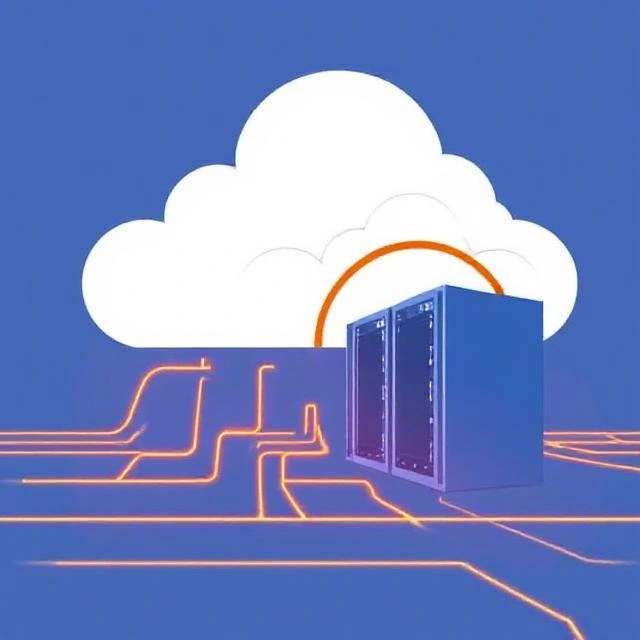
NAS Storage
For businesses that
want complete control over the data in their vault, NAS drives provide a
different approach for backups. A NAS is a system that controls one or more
hard drives. Only people given permission by the admin can access this backup
server.
PrimeArray NAS
storage is rapidly gaining popularity as an effective, scalable, and low-cost
storage solution. PrimeArray NAS devices have a single-place storage
consolidation infrastructure and day-to-day support activities such as backup,
archiving, and a cloud tier.To provide redundancy protection, you can set up a
NAS drive with a RAID configuration. RAID stands for Redundant Array of
Inexpensive Drives, and it is a NAS system that comprises of two hard drives
working simultaneously to create mirrored copies of your files. This ensures
that if a backup drive fails – your data is still safe.
Each
network-attached storage drive handles all unstructured data such as video
files, audio, MS Office documents, audio, and more. With NAS, your data is
easily accessible, making it easy for your teams to collaborate promptly and
respond to queries/feedback. Since having a network storage device is like
having your private cloud, authorized personnel can access the data remotely
using a pre-defined network connection. It essentially means that your
employees can work from anywhere, anytime.
NAS device is a storage device connected to a network. It allows storage and retrieval of data from a centrally-managed location for authorized network users. You don’t need to worry about additional hardware or software. It is usually configured and managed using a browser-based utility. Each storage unit resides on your company’s local area network (LAN) as independent nodes, defined by unique IP addresses.
PrimeArray NAS
devices are designed to meet the needs of large enterprises, small agencies,
and individuals. Each network hard drive consists of a minimum of two drive
bays. However, you can also choose single-bay systems if you have a lot of
non-critical data to store.
Pros of PrimeArray NAS device
-
Easy to operate
-
Low-cost set-up compared to other storage
systems in terms of storing large amounts of data for extended duration
-
Easy and efficient data backup and
disaster recovery management tools
-
Centralized storage offering complete
control over authorization and access
-
Multiple users and devices can access the
data at the same time
-
Offers enhanced customization options
-
Fully scalable
-
Usually, Network-Attached storage prices
are custom-made to fit your budget
-
You control your own security
-
Can restrict the device from ever talking
to the Internet
-
One time cost
-
Physically control the device and the data
resides in the device that you physically own
Cloud
Storage
Over the past few
years, cloud technology has become the go-to option for many businesses and
organizations. Simply put, cloud storage is storing digital information in an
online space with various servers and locations, typically operated by a
hosting company.
Most people are
accustomed to using services like Google Cloud, iCloud (Mac), Creative Cloud
(Adobe users), and DropBox. These cloud backup services are well known, but
they aren't necessarily the best option.
Many popular
cloud backup services raise questions surrounding privacy, value for money,
backup restrictions, and data security. Depending on your personal threat model
(and the kind of data you need to back up), you may desire greater control and
security than those services can provide.
The only
difference is that with cloud storage, all of your data is transferred to
servers hosted on off-site networks. Once transferred, the responsibility of
storing the data and keeping it secure falls on the service provider.
As with any
other storage system, cloud-based storage also offers distinct advantages. But
it also raises significant concerns about data security and administrative
control. Listed below are the major pros and cons of opting a cloud-based
storage for your data :
Almost all cloud
service providers throttle their bandwidth for balancing many customers demands
for uploads and downloads. They attempt to maintain availability while
restricting your capability. If you think that having a top-notch Internet
service provider will allow you to access the cloud quickly you are wrong
welcome to the speed of dial up. If some type of peak load were to happen with
the cloud service provider it would crash much like a bank with everybody
trying to run in.
Cons
-
Security concerns are quite common when
using cloud storage services
-
You’ll have limited control over your data
-
Data transmission to and from the cloud
can fluctuate depending on the bandwidth
-
You may face downtime if your cloud
service provider has technical problems
-
Shared cloud storage may impact overall
performance
-
Throttled connectivity speed
-
Your valuable private data could appear at
a later point in time anywhere
Benefits:
Off-site backup
As you can see there are many cons to
using cloud storage. Essentially a cloud storage solution is just somebody
else’s NAS system which is shared between many users which is directly
connected to the Internet.
PrimeArray systems recommends almost
all of there customers to opt for their own PrimeArray NAS server. If the
customer has a need for off-site backup our systems can encrypt the data using
AES-256 encryption (with the customer’s private key of choice) and place a
backup on a cloud service provider.





















































































.webp)
















